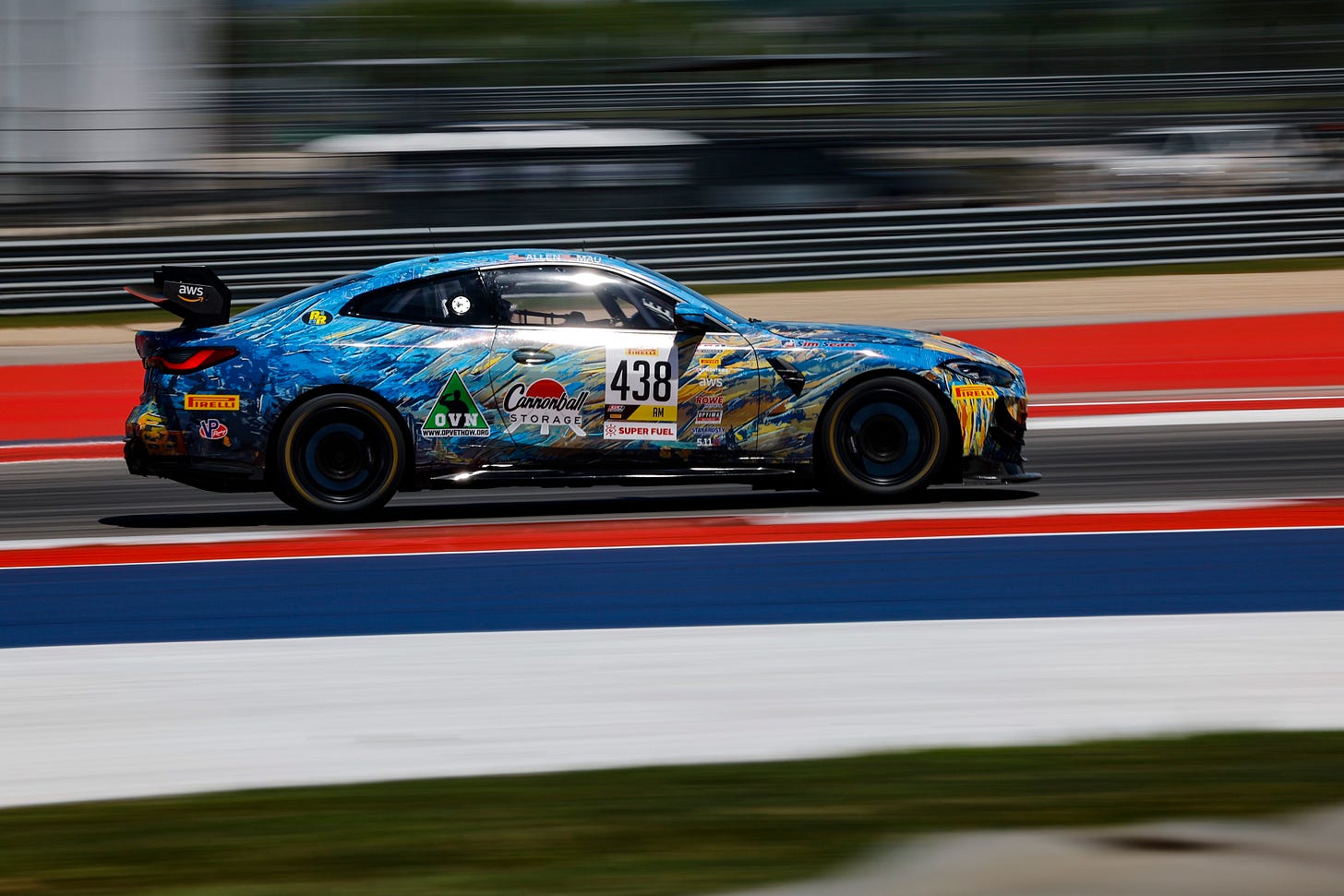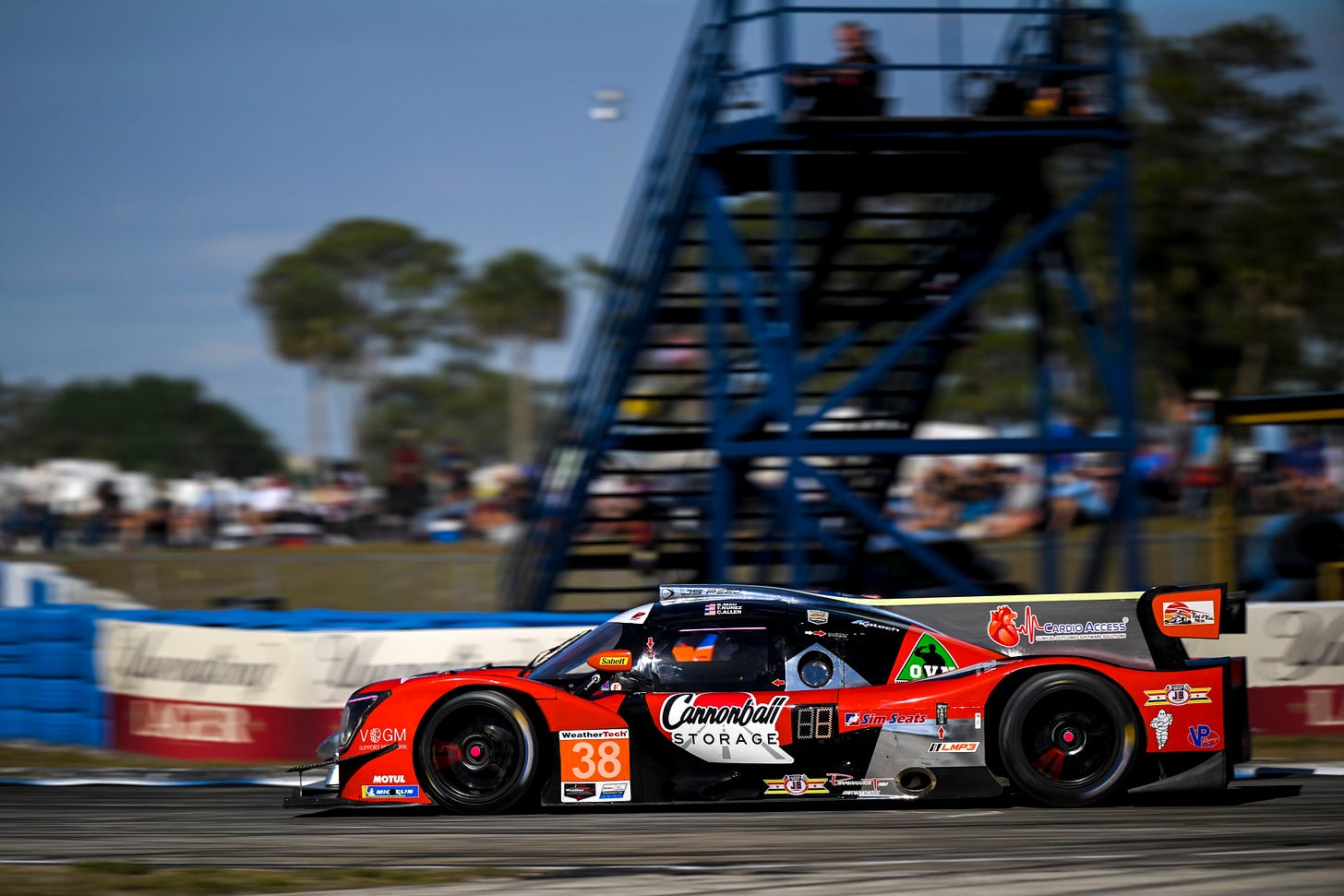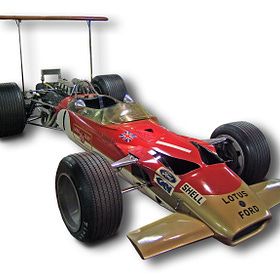Late To The Game
GT4 regular and Rolex 24 podium finisher Chris Allen needed some convincing to try out simulation as a driver-preparation tool, but now he's a convert.
Chris Allen's trip to Indianapolis Motor Speedway to compete in the 2023 Pirelli GT4 America season's final weekend Oct. 6-8 marks his debut at the historic track.
He'll take his first steps on Hulman Boulevard and make his first visit to Gasoline Alley. But when he guides his Samantha Tan Racing #438 BMW M4 GT4 out of the garage and onto pit road, things will start to look familiar.
Allen estimates he's turned 200 or so laps on the 14-turn Indy road course in recent weeks--all from the comfort of his suburban Philadelphia business. If all goes well on race weekend, Allen and co-driver Rob Mau will lock down second overall in the GT4 America season standings.
Like most serious race car drivers, Allen spends a lot of time on a simulator. But unlike most drivers, especially ones born during the video-game era, Allen is an admittedly late convert to virtual racing.
Allen, 29, is technically an amateur--a gentleman driver, in sports-car parlance--but he's hardly inexperienced. He started racing in 2014, driving a BMW E30 in National Auto Sport Association events. He's run Nürburgring Endurance Series events back when it was VLN, and driven IMSA LMP3 cars in the biggest events on the WeatherTech Sports Car Championship schedule.
Until a few years ago, however, he never used a simulator.
"I always discounted it as a bit of a gimmick," he says. "More of a game than a tool."
A chat with his driver coach, Jon Miller, while Allen was learning the LMP3 prototype ropes with Performance Tech Motorsports (PTM) changed his mind.
Back in 2022 when Allen started with PTM, the LMP3 class was an ideal entry into top-tier sports car racing. Some events were short sprints--under 2 hours--featuring all LMP3 cars at venues like Virginia International Raceway. The class also ran in the IMSA WeatherTech Sports Car Championship's biggest events, including the Rolex 24 at Daytona and 12 Hours of Sebring, alongside the best cars and drivers in North American sports car racing.
"We'd go to these new tracks and I asked [Jon], 'Are you running the sim stuff? Is it just a game or is it useful?" Allen recalls. "He said, 'Listen, the sims are not cheap. But if you buy a quality one, and if you can get 5 percent, 10 percent or 15 percent closer to your goal right off the bat, it pays for itself and in a day or two.’"
The math makes sense. Testing race cars is expensive. Gas, tires, and track time cost money, for starters. Then there's the occasional accident.
On a simulator, that's all paid for up front. Even the crashes are free.
Allen invested in what he considers a modest simulator set-up from Miami-based GPX Labs. He uses iRacing, the virtual motorsport simulator specialist known for its variety of cars and tracks.
He opted for a setup with just visual effects and no motion.
"Everybody I've talked to that is in [racing] doesn't run motion," he says. "I've noticed the guys that try to really push motion on you are the guys that sell the simulators rather than proper drivers."
Allen set the simulator up in a prominent place inside his Cannonball Storage high-end vehicle-storage business. He lets his customers use it some--"it's kind of a draw for some members here," he admits--but more often than not, he's honing his skills or preparing for an upcoming event.
"If you show up to a track cold--and those opportunities do occasionally present themselves--you better have at least seen the track," he says. "You just don't have time to get up to pace, especially on an IMSA weekend."
Allen doesn't spend a lot of time setting up his virtual cars. Rather, he relies on the sim to help make a track's layout second-nature in his mind. He spent hours on iRacing's Daytona road course leading up to the 2023 Rolex 24, for instance.
"I certainly spent many, many nights just lapping around there," he says. "You learn the track, and run it in different conditions."
Lapping with other sim racers driving different class cars is another major benefit.
"It helps you get an understanding of where you can get around people, where you need to cooperate and where you need to line up," Allen says. "It's good for traffic management."
Allen and his Performance Tech LMP3 co-drivers made the most of their Rolex 2023 preparation, earning a podium finish.
While on-track results often come down to driving skill and racing luck, prep time on a simulator doesn't hurt.
"As long as you have halfway decent equipment, it it really does translate," Allen says." I've found myself having moments of deja vu. My first lap on a track is like, 'Wow, I feel like I've really done this before.’ But it's my first time there in real life."
More from On Motorsport
Podium Perfection
Podium finishes never come easy in endurance racing. This year's third place LMP3 finish at the Rolex 24 by the Performance Tech Motorsports team was particularly hard-earned.
The Rise And Fall Of F1's High Wings
They came and went quickly, thanks to Chaparral's inspiration, lots of innovation, and a pair of Team Lotus crashes.







